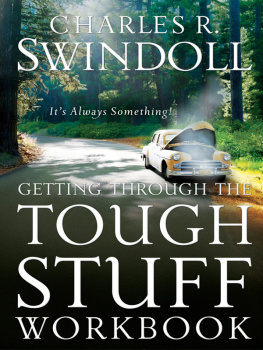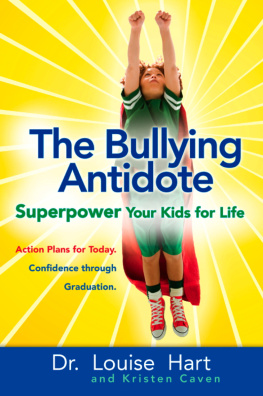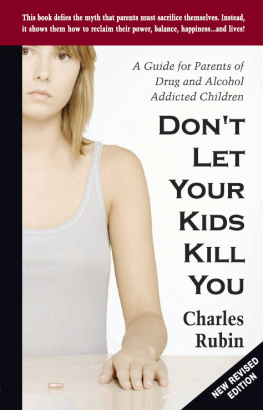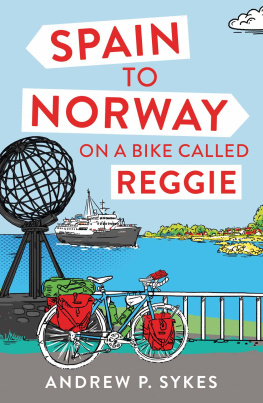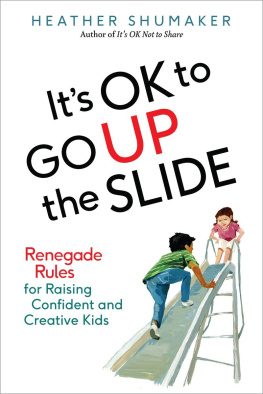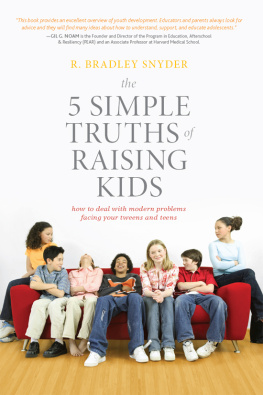
The author and publisher have provided this e-book to you for your personal use only. You may not make this e-book publicly available in any way. Copyright infringement is against the law. If you believe the copy of this e-book you are reading infringes on the authors copyright, please notify the publisher at: us.macmillanusa.com/piracy.
contents
For Janet
preface
There are two things you need to know about this book:
First, the world is full of touchy-feely books of affirmation. This is not one of them.
Second, these rules were not written by Microsoft founder Bill Gates.
I mention this because these fifty rules began as a mere ten rules that I used in a television commentary back in the mid-1990s; they grew to twelve, and then to fourteen. Along the way, they took on a life of their own, especially after they were somehow attributed to Gates. With that attribution, the original rules raced across cyberspace, showed up in thousands of e-mails and Web sites, and were picked up by newspapers and an assorted collection of politicians and motivational speakers and commentators, including radios Paul Harvey and advice columnist Ann Landersall crediting the rules to the Master of Software. This was flattering and a bit exasperating. I enjoyed the fact that so many found the rules valuable, but it was a mixed blessing when my own e-mail box began to fill with the brilliant insights of Bill Gates.
Eventually, the word got out that Gates was innocent of the deed and that the blame rested solely with a guy named Sykes. Web sites devoted to tracking down urban legends actually devoted pages to debunking the Gates link. One debunker, www.snopes.com, commented: Why its attributed to Gates is a mystery to us; it doesnt really sound the least bit like something he would write. Possibly, the item the Internet-circulated version of the list generally ends with (Be nice to nerds) struck a chord with someone who views Gates as the ultimate successful nerd of all time. Thats as good a theory as Ive heard.
But how to account for the enduring appeal of the original rules, which survived being delinked from Gates? I think the explanation is that they were such a blunt contrast to the thumb-sucking, feel-good infantilism that has become so common in American education and culture.
Previous generations thought it was their duty to prepare young people for the ups and downs of life as a matter of course and as an obligation. There is a long and rich literary tradition of books giving sound, realistic advice to young people, written by people who thought it was their job to provide children with a guide to growing up, rather than to amuse and entertain them or to be their buddies. Today, however, children can spend years in the company of credentialed goo-goos who not only miseducate them about the real world but also fail to give them the tools to make their way in it. This book is intended to counter their influence: think of it as a users manual for the real world.
The themes in this book have been ably addressed by Christina Hoff Sommers and Sally Satel in One Nation Under Therapy ; deserve a much larger audience). The rules also draw inspiration from Lord Chesterfield, Anatole France, Teddy Roosevelt, La Rochefoucauld, P. J. ORourke, H. L. Mencken, and Viktor Frankl, as well as from a talented group of writers including Lance Burri, Paul Graham, Rick Esenberg, Tom McMahon, and John Hughes. But the primary source has been the ongoing march of folly, inanity, and pabulum in both popular culture and public education; for the constant inspiration, Im eternally grateful.
I am also grateful for the ongoing support of my colleagues at Journal Broadcast for providing me with an outlet for the early version of these rules and helping me develop some of the issues on my radio show and in my columns. Special thanks to my agent, Glen Hartley, who believed in this book, and to my editor at St. Martins Press, George Witte, who saw the possibilities of the full fifty rules.
And, as always, thanks to my wife, Janet, who has been my constant counselor and inspiration. For years she has been encouraging me to expand the original fourteen rules and to write this book. Without her it would not exist. I would say that I dont know how to repay her, but I know that she has a lengthy list of ideas and suggestions, many of them having to do with remodeling. I love you always.
introduction
Speaking to the nation on the occasion of the space shuttle Challenger disaster, President Ronald Reagan said that the tragedy reminded us that:
All human progress is a struggle against the odds. We learned again that this America, which Abraham Lincoln called the last best hope of man on Earth, was built on heroism and noble sacrifice. We think back to the pioneers of an earlier century, and the sturdy souls who took their families and their belongings and set out into the frontier of the American West. Often, they met with terrible hardship. Along the Oregon Trail you can still see the grave markers of those who fell on the way. But grief only steeled them to the journey ahead.
Heroism? Sacrifice? Struggle? Hardship? Grief? What could Reagan have been thinking?
What about self-esteem? Self-actualization? The power of a group hug?
Somebody call child-protection services. Bring in the grief counselors, because obviously we have to protect the kids from this sort of thing.
* * *
Things have changed in America.
Somehow a nation of confident, self-reliant adults has been replaced by one run by people who think we need to shield children from such evils as dodgeball and tag.
A child with a rare disease may have to be put in a bubble, Jonathan Yardley once wrote, but putting the entire American system of elementary and secondary education into one borders on insanity. Yet that is precisely what has happened.
The symbol of our time, however, is not so much a bubble (which has a certain romantic science-fiction appeal) but the more mundane bubble wrap. Instead of preparing children to deal with the inevitable scratches, bumps, and bruises of growing up, our modern-day nannies insist that we should swaddle them in bubble wrapand not even the kind that you can have fun with by popping.
The modern bubble-wrap mentality assumes that children are so frail and easily bruised that they have to be insulated from life. No losing, no disappointments, no harsh reality checks. But like a child who grows up in a bubble without developing any immunities to the outside world, a child raised in bubble wrap is not prepared for the symptoms of life: failure, frustration, and having to make choices tougher than the color of their new iPod sleeve.
In many ways these are the best of times to be an American child: an age of prosperity, choice, technological plenty, and parental indulgence. When have young people ever been more cared for, deferred to, or pampered? But these also are one of the worst of times, because seldom if ever has a generation been less well prepared to cope with the world they will face. We arent just failing to make rugged individuals. We arent even making competent adults.
In a 2004 Psychology Today article, Hara Estroff Marano noted that these frantic efforts to cushion children from bumps may explain the rise of depression and other psychological disorders in what Jean Twenge calls Generation Me. Marano wrote:
With few challenges all their own, kids are unable to forge their creative adaptations to the normal vicissitudes of life. That not only makes them risk-averse, it makes them psychologically fragile, riddled with anxiety. In the process theyre robbed of identity, meaning and a sense of accomplishment, to say nothing of a shot at real happiness. Forget, too, about perseverance, not simply a moral virtue but a necessary life skill. These turn out to be the spreading psychic fault lines of 21st-century youth. Whether we want to or not, were on our way to creating a nation of wimps.
Next page


